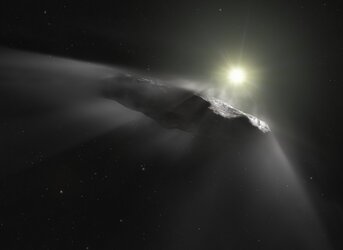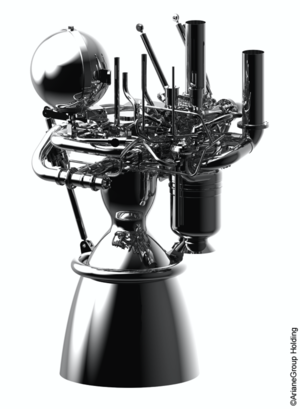Chameleon satellite to revolutionise telecom market
Telecom satellites are set to enter a new age, as ESA, Eutelsat and Airbus Defence & Space begin designing the most flexible payload ever.
The Quantum programme is a departure from the traditional, custom, one-off approach to building satellites by offering a new and generic payload design. For the first time, it will enable users to request the performance and flexibility they need in terms of coverage, bandwidth, power and frequency.
The satellites developed under the Quantum umbrella will be cheaper and quicker to build compared to current methods by using generic subsystems and equipment, enabling larger-scale production and more efficient control of stock.
Quantum will also be able to completely transform in orbit. Once in space, the chameleon-like satellite can adapt to new commands in coverage, frequency band, power use and even change its orbital position. This will make it the first generation of universal satellites able to serve any region of the world and adjust to new business without the user needing to buy and launch an entirely new satellite.
This ability to mirror or complement another satellite anywhere in geostationary orbit will transform fleet management and result in a significantly more efficient use of resources.
Quantum is a public–private partnership (PPP) between ESA, leading satellite operator Eutelsat and Airbus Defence & Space (UK). The partnership ensures the three parties share risks and funds.
The first Quantum satellite will be delivered in 2018 and operated by Eutelsat to serve government, mobility and data markets. Airbus DS will be the prime contractor, using a new platform from Surrey Satellite Technology Limited (GB). Both developments are supported by the UK Space Agency.

Magali Vaissiere, ESA Director of Telecommunications and Integrated Applications, said: “The Quantum programme is another excellent PPP example. Industry benefits from a new type of satellite in a highly competitive and risk-averse market, the satellite operator benefits from the satellite’s advanced features and the ESA Member States who invested in Quantum are ensured maximum return on their support through the development of their respective industries.”
Michel de Rosen, Chairman and CEO of Eutelsat, noted: “Eutelsat Quantum is the first of a new generation of satellite that has agility, adaptability, responsiveness and performance at its core. It is the culmination of many years of research and evaluation driven by Eutelsat and marks a new age of maturity for the commercial satellite business.
“We are proud to be spearheading this initiative in partnership with ESA and Airbus DS with the support of the UK Space Agency.”
“Quantum is the first satellite that can be fully reconfigured in orbit,” added François Auque, Head of Airbus DS Space Systems. “In other words, Eutelsat will be able to modify parameters such as frequencies, footprints and the distribution of the satellite’s allocated power, even after its launch.
“With Quantum, Airbus DS delivers yet another innovation to Eutelsat, marking a breakthrough in the area of telecommunications satellites, after already delivering innovations in the area of electric propulsion on Eutelsat-172B and the provision of internet via satellite with Ka-Sat.”
UK Minister for Universities and Science Jo Johnson said: “Space is a great British success story and this partnership between Airbus Defence and Space and Eutelsat to build cutting-edge telecommunications satellites here in the UK is testament to that. Our investment in collaborative space science means the UK has the know-how and technical expertise to provide exciting and innovative space solutions that will drive growth and create jobs.”
The signing of the PPP took place at the newly inaugurated Roy Gibson Building, the new home of the European Centre for Satellite Applications and Telecommunications (ECSAT), ESA’s centre in the UK.















 Germany
Germany
 Austria
Austria
 Belgium
Belgium
 Denmark
Denmark
 Spain
Spain
 Estonia
Estonia
 Finland
Finland
 France
France
 Greece
Greece
 Hungary
Hungary
 Ireland
Ireland
 Italy
Italy
 Luxembourg
Luxembourg
 Norway
Norway
 The Netherlands
The Netherlands
 Poland
Poland
 Portugal
Portugal
 Czechia
Czechia
 Romania
Romania
 United Kingdom
United Kingdom
 Slovenia
Slovenia
 Sweden
Sweden
 Switzerland
Switzerland




























